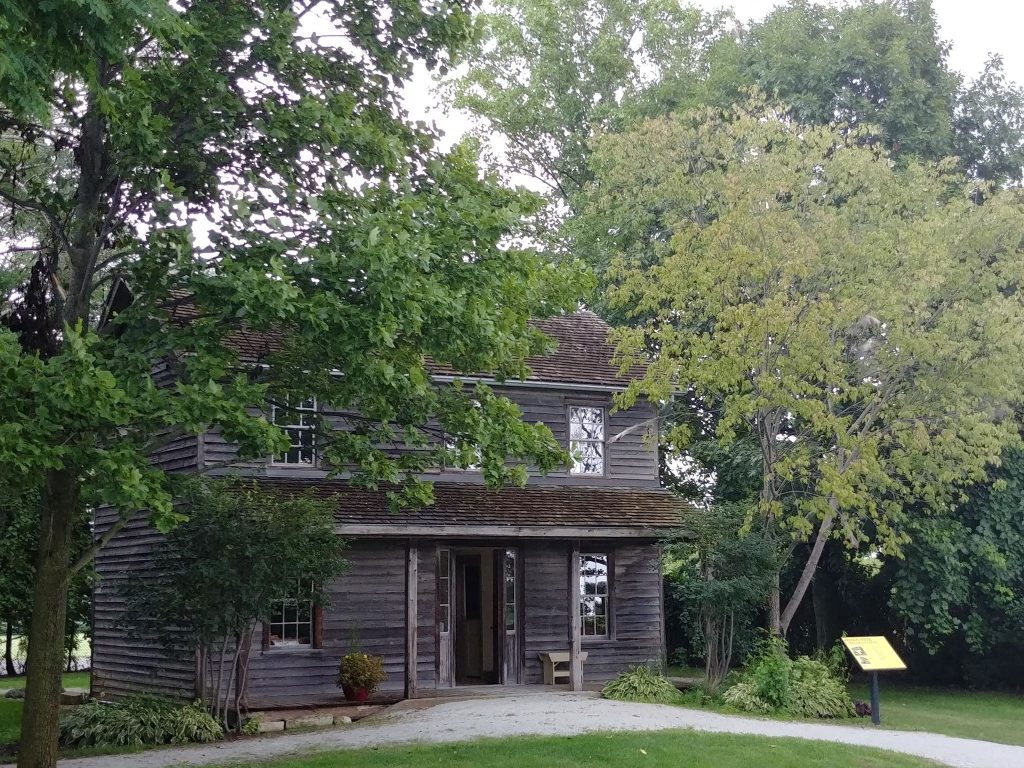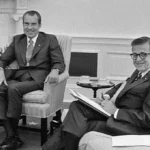Blog Post
Discovering the real Uncle Tom’s Cabin–and the lost poems of John McCrae
By Jonathon Van Maren
As a longtime lover of literature, one of the things I most enjoy doing is visiting historical sites associated with great writers and their works. Over the past several years, I have realized that there are quite a few of these places in Canada—often out of the way, nearly always unpublicized, but very much worth the visit. I’m often accused of spending far too much time writing exclusively about the terrible things taking place in our culture, and rarely stopping to write about and reflect on the many good and beautiful things that we are defending in the first place. And so I thought I’d do a two-part series on literary locations across Canada—why they are beautiful, what they tell us, and why you should visit them. This is Part I.
The Uncle Tom’s Cabin Historic Site in Dresden, Ontario
Growing up, Harriet Beecher Stowe’s 1852 abolitionist novel Uncle Tom’s Cabin was my favorite book. Like the multitudes that read it when it was first published, I found the stories of life on Southern slave plantations grotesque and heartbreaking, and the characters that Stowe conjured with her pen to be riveting and realistic. The book had such an impact on the public’s perception of slavery at the time that it is credited for laying the groundwork for the American Civil War—and when Abraham Lincoln met Stowe, he purportedly greeted her as, “the little woman who wrote the book that started this great big war.” As the little woman herself wrote in her acclaimed novel: “Scenes of blood and cruelty are shocking to our ear and heart. What man has nerve to do, man has not nerve to hear.”
But virtually nothing is known about the man who inspired Stowe’s Uncle Tom, who was loosely based on a former slave named Josiah Henson. He lived, I recently discovered, only a couple of hours away from my home. Henson’s life is an extraordinary one. He was born into slavery in 1789 in Charles Country, Maryland, and experienced all the brutalities that were routine for slaves in the South. He was sold away from his parents, and beaten so badly he remained maimed for life. As one display at the museum next to his old homestead explains, everything changed when he was eighteen and “obtained permission to attend a church meeting. There he heard the Scriptures read aloud from the Bible for the first time. One specific verse of Scripture had a profound effect on his life:
‘But we see Jesus, who was made a little lower than the angels for the suffering of death, crowned with glory and honour; that He by the grace of God should taste death for every man.’ Hebrews 11: 9”
Henson began to talk about what he had heard with all the slaves on the plantation where he was forced to labor, and eventually became a well-known preacher. He struck a deal with his master in 1829 to purchase his freedom with the fees he earned from preaching—but his master cruelly betrayed him, taking him to New Orleans to be sold. Henson instead broke free with his wife and four children, taking the Underground Railroad through the South, across the Niagara River, and into then-Upper Canada (now Ontario) on October 28, 1830. “I knew the North Star—blessed be God for setting it in the heavens!” he later wrote. “Like the Star of Bethlehem, it announced where my salvation lay.” The Henson family joined a thriving community of Black Loyalists who had fought for the British during the American Revolution, as well as black refugees from the War of 1812.
The plaque next to Henson’s grave—a family plot next to the old homestead, dotted with the graves of the descendants who were laid to rest beside him—explains his historic impact in just a few sentences: “After escaping to Upper Canada from slavery in Kentucky, the Reverend Josiah Henson became a conductor of the Underground Railroad and a force in the abolition movement. The founder of the Black settlement of Dawn, he was also an entrepreneur and established a school, the British-American Institute. His fame grew after Harriet Beecher Stowe stated that his memoirs [The Life of Josiah Henson, Formerly a Slave] published in 1849 had provided ‘conceptions and incidents’ for her extraordinarily popular novel, Uncle Tom’s Cabin. Henson’s celebrity raised international awareness of Canada as a haven for refugees from slavery.” He also led a Black militia unit during the Rebellion of 1837, and his son fought in the Civil War on behalf of the Union.
The Uncle Tom’s Cabin Historic Site is beautifully done, and well worth the visit. The museum hosts many artifacts of both slavery and the slave trade, and the story of Josiah and his family is told with engaging detail. Refreshingly, Henson’s Christian faith, which informed everything he did, is highlighted unapologetically multiple times. The original wooden house the Hensons lived in is still standing, and gives the visitor a good idea of how they lived all those years ago. A little church that dates from over a century ago and resembles the one Rev. Henson would have preached in, has been moved to the site to complete the story. The Henson family plot and a graveyard of other Black community members is only a few dozen yards away. As my friend and I walked through it, marveling that we’d never heard this incredible bit of history before, he summed up what we were both thinking: “Why can’t they put this guy on one of our banknotes?”
The way Josiah Henson lived his life can be summed up in the words of Harriet Beecher Stowe: “O, with what freshness, what solemnity and beauty, is each new day born; as if to say to insensate man, ‘Behold! thou hast one more chance! Strive for immortal glory!’”
John McCrae’s Birthplace in Guelph, Ontario
Another literary landmark that few people are aware of is the little limestone house in Guelph, where the poet John McCrae was born. It now hosts a display where viewers can see a variety of Great War artifacts, some of McCrae’s belongings, and his Bible—given to him by the Ottawa Auxiliary Bible Society, along with a New Testament presented to him by the City of Guelph, back when the Scriptures were considered indispensable for men leaving home, perhaps never to return. McCrae himself was a devout Christian, a fact that rarely surfaces in the sanitized biographies that preface the nation-wide recitations of his poem In Flander’s Fields, written in a dugout near Ypres just a few days before he, too, followed his fallen friends into eternity.
But what most do not know about McCrae is that In Flander’s Fields was not the only poem he wrote. He died young, and so did not have the opportunity to obtain the recognition that he undoubtedly deserves. But the few works that he did leave behind are as powerful as the lines that are chanted at cenotaphs across Canada on Remembrance Day, as the final notes of the Last Post fade into the grey November silence:
O guns, fall silent till the dead men hear
Above their heads the legions pressing on:
(These fought their fight in time of bitter fear,
And died not knowing how the day had gone.)
O flashing muzzles, pause, and let them see
The coming dawn that streaks the sky afar;
Then let your mighty chorus witness be
To them, and Caesar, that we still make war.
Tell them, O guns, that we have heard their call,
That we have sworn, and will not turn aside,
That we will onward till we win or fall,
That we will keep the faith for which they died.
Bid them be patient, and some day, anon,
They shall feel earth enwrapt in silence deep;
Shall greet, in wonderment, the quiet dawn,
And in content may turn them to their sleep.
And then there are these searing stanzas, which seem to describe the secular savageries that ravaged the century after McCrae’s departure—lines that seem chillingly prophetic in so many ways:
I saw a city filled with lust and shame,
Where men, like wolves, slunk through the grim half-light;
And sudden, in the midst of it, there came
One who spoke boldly for the cause of Right.
And speaking, fell before that brutish race
Like some poor wren that shrieking eagles tear,
While brute Dishonour, with her bloodless face
Stood by and smote his lips that moved in prayer.
“Speak not of God! In centuries that word
Hath not been uttered! Our own king are we.”
And God stretched forth his finger as He heard
And o’er it cast a thousand leagues of sea.
McCrae is rightly remembered for the words that are carved into a grey memorial beside the house where he was born. When I visited, it was chilly, and dry leaves scratched their way across the ground near where a concrete pavilion flanked by torches rises abruptly from the ground. But perhaps some enterprising English teachers will agree with me that he should be remembered for more than that, and that his story is far more inspirational than simply the soldier who wrote a single poem that helps us, each year, to remember the fallen Canadians across the ocean who claimed a little piece of foreign lands as their own by laying down their bones and breathing their last in defence of others.
___________________________________________________
Part II can be found here.








